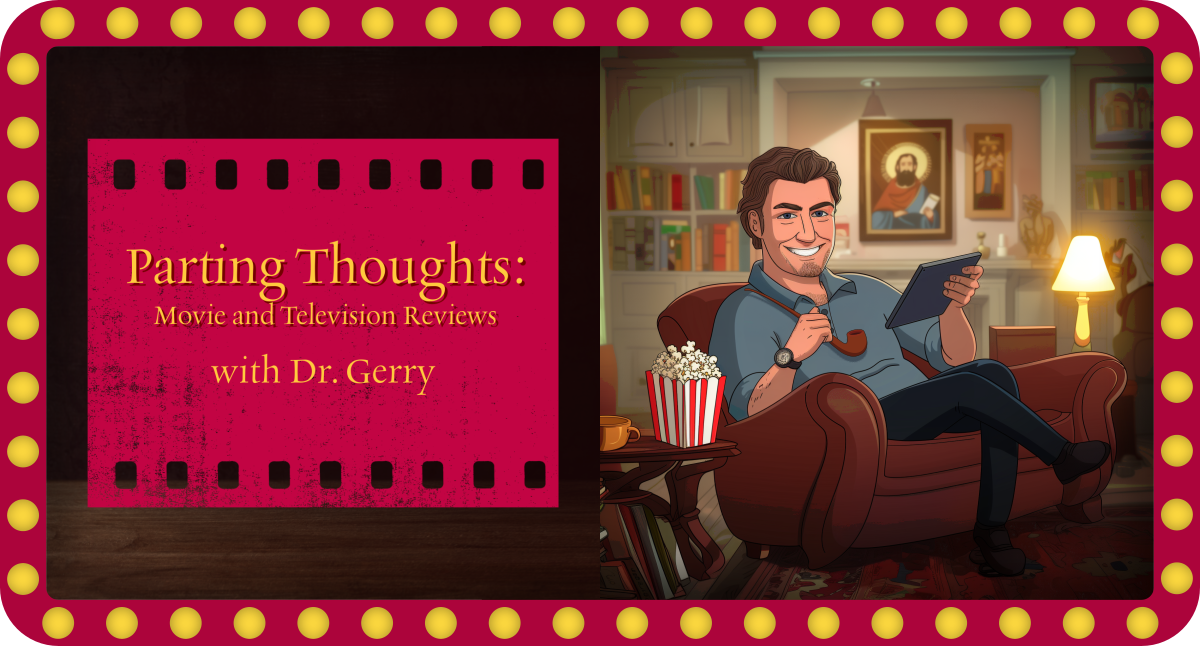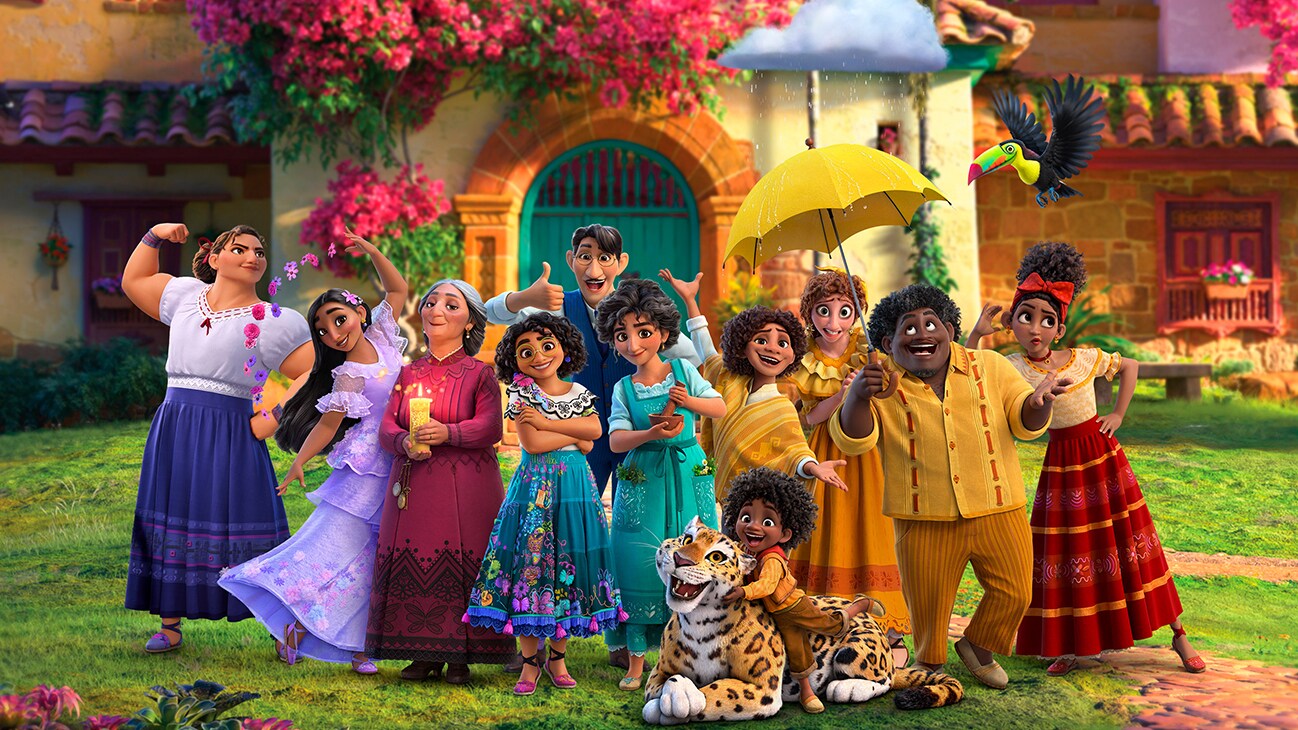Encanto is a charming 2021 animated fantasy musical film by Disney with powerful messages (deliberately intended or not) from the film’s creators, about trauma, parts, and what it means to become an integrated internal family. There is no real external villain in this film as this is ultimately a movie about internal struggles. From a parts psychology perspective, the end goal here is unblending, internal harmony, unburdening manager parts, bringing home an exile, and discovering the role of the inmost self.
We learn about the Columbian Madrigal family from the matriarch, Abuela, who has three children and many grandchildren living together in a magical house. Many years ago, Abuela fell in love and married Pedro (Abuelo) and started a family. They were forced to leave their town and embark on a journey to find a new home. Tragically, Pedro was killed defending the traveling refugees, leaving behind his wife with three small babies. Despite her grief, Abuela finds a miraculous candle that creates a magical house (Casita) where they can live. The house is animated and seems to have a personality of its own. Objects move around the house, the tiles can lift and move, the stairs can transform, etc.
Each of the three children and their children receive a gift, a magical power of some kind. These powers are used to help build and support the community that has grown around Casita and the Madrigal family. One character can manipulate the weather, another, Luisa, has incredible strength, and still another can shape shift. Isabela has the gift of beauty and grace and can produce flowers at will. The main character, Mirabel, one of Abuela’s grandchildren, however, does not receive a gift. This turns out to be a sign that the magic is fading, the candle is diminishing, and the house is losing its powers.
As I reflect on this film from a parts perspective, I feel that Casita (the house) and the candle represent the body and spirit respectively. The family members represent parts, and I will argue that Mirabel represents the IFS concept of “Self.” In the end it is Mirabel who seeks to unburden and unite all the parts of the family system. She does not have a “gift” because she is not actually a “part” in the normal sense; she is the core Self who brings about harmony in the system of the entire family.
During the film, Mirabel visits with each of the parts and helps them resolve each of their issues. She stays in the nursery to nurture others. She comforts her young cousin and even walks with him to open his door. She stays others-focused and knows all the members of the family, all the parts of the self-system.
Two feature songs powerfully capture the experience of burdened manager parts. Isabela, the manager part that must appear perfect sings, “so much hides behind my smile… I’m so sick of being pretty, I just want something true.” Meanwhile Luisa, the manager part that must handle all the pressures and stresses of life sings, “under the surface… pressure… drip, drip drip, that just won’t stop.” Mirabel, in meeting with each of them, helps them recognize their true worth. In the end, Luisa learns to let go of crushing expectations, accept help, and receive care. Isabela learns to be herself, express her true emotions and release her full creative range.
Abuela, the matriarch, the strong leader, a powerful manager part, has endured hardship and trauma. Her agenda is to survive and to build a home and prosper. She helps bring order to the family. She blames Mirabel for the deterioration of the house and the death of the miracle. This is a classic situation of a self-like protector-manager part not trusting the Self. Abuela meets Mirabel by the river where the trauma of losing Pedro occurred. Abuela tells her story of love and loss. It is through this witnessing that Abuela has a powerful moment of insight and repentance. Abuela says, “I was given a miracle, a second chance, and I was so afraid to lose it, I lost sight of who the miracle was for. I am so sorry. We are broken because of me.” Mirabel really sees and understands Abuela in this moment and responds beautifully, “I can finally see. You lost your home. You lost everything. You suffered so much. It will never happen again, because of you. We were saved because of you. We became a family because of you. There’s nothing we can’t fix together.” Mirabel affirms and loves Abuela in this moment. As butterflies swirl around them, Abuela and Mirabel embrace. The strong protector part connects with the Self as a prerequisite to connecting with exiles, healing wounds, rebuilding the self-system, and working toward inner harmony.
Abuela’s son Bruno has the power to see the future and so he is blamed for everything that goes wrong. His vision of the destruction of the house is cause for him to be exiled. Although he doesn’t actually leave Casita, his room becomes a tower that everyone is afraid of, and it becomes off limits. Mirabel, however, chooses to go find Bruno, endures the trials of the tower, and discovers that Bruno is kind and that he chose exile to protect the family. It is through Mirabel’s efforts that Bruno is reunited with the family and finally received with love by Abuela.
The family learns to work together, even without their magical talents. They learn to depend on others (the outside community) to rebuild the house. In the final scene, Mirabel is given the door (really a doorknob with her initial) to the newly rebuilt house, the newly recovered self-system and it lights up like before. There is a measure of self-acceptance now, “It isn’t perfect, neither are we.” With the Self in a true leadership role, all the parts, all the members of the family, receive their gifts and talents anew. Mirabel exclaims, “I see … me. All of me.”
Like Inside Out and Inside Out 2, this film betrays a deep exploration of what it means to be a person with a complex inner world. The Holy Trinity is both three persons and one God. As a Church we are very diverse, but united as one in the Body of Christ. As individuals we are one person, one body, one soul, but many internal parts. Encanto, in a powerfully creative way, teaches us about the beauty of each human soul, filled with a variety of parts with many talents, but united in one house, one Casita, guided by an inmost self.
Christ is among us!
Dr. Gerry
Dr. Gerry Crete is the author of Litanies of the Heart: Relieving Post-traumatic Stress and Calming Anxiety Through Healing Our Parts which is published by Sophia Institute Press. He is the founder of Transfiguration Counseling and Coaching, Transfiguration Life, and co-founder of Souls and Hearts.
###
“Parting Thoughts”
Check out the archive of all of Dr. Gerry’s movie reviews in his “Parting Thoughts” in our archive.
New IIC podcast episode released: Exodus 90: The Integration of Personal Formation with Dr. Jared Staudt
Join Dr. Jared Staudt, the Director of Content at Exodus 90 and guest host Dr. Gerry Crete to discuss the integration of personal formation in Exodus – either by video or by audio only. Join in to learn how asceticism is part of human formation, and how both are oriented toward love. Dr. Staudt and Dr. Gerry discuss the difficulties that secularism and individualism cause in our culture and within ourselves, especially for men. What do vulnerability and authenticity look like for men? And finally, how can I be different, how can I change and grow? The Exodus 90 website is here.
Pray the Litanies of the Heart
Dr. Gerry wrote the three Litanies of the Heart for Souls and Hearts, to help us enrich our prayer lives and develop a closer, more intimate relationship with Jesus as well as healthier and more fulfilling relationships with others. Free downloadable PDF copies of the litanies, a free guide to praying the litanies, free audio versions, and an order form for printed versions, all in English and Spanish are available on our litanies landing page.
Less than a month until the Resilient Catholics Community reopens!
Catholic men and women – it’s time to consider. Are you ready to get more serious about your own personal formation and embark on a pilgrimage to better understand yourselves, your neighbors, and God so that you can receive love and love back better?
Check out the Resilient Catholics Community at our RCC landing page and learn all about a unique opportunity to get to know and love your parts in a structured, year-long program where you meet weekly in small groups together with other likeminded Catholics on a pilgrimage to better human formation. Join nearly 400 other serious Catholics working on human formation; our new cohort opens for applications on October 1, 2024. And check out what RCC member Kathy Holecek says about her experience in the RCC in this 3-minute video testimonial.

